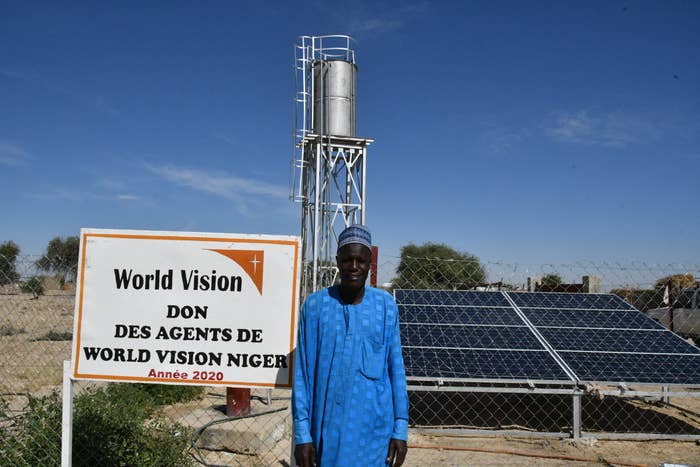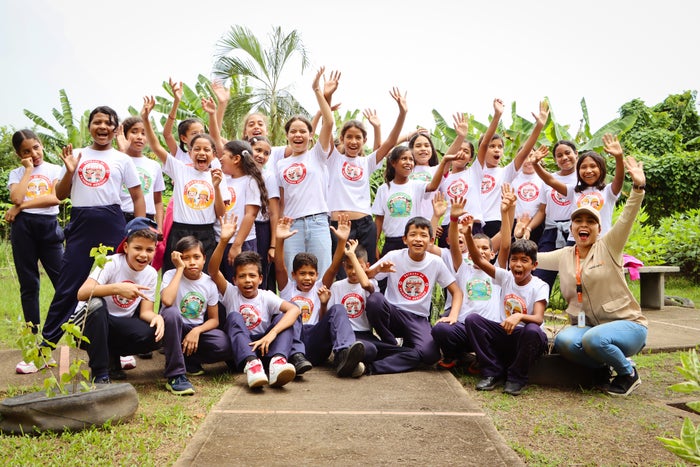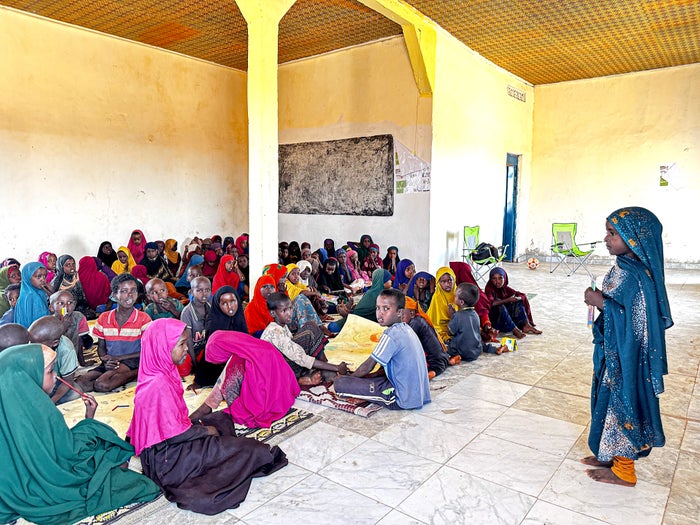Humans are a resilient bunch. We’ve advanced and survived through many challenging circumstances, thanks to our ability to problem solve and recognise and escape danger. But what happens when there’s nowhere left to go?
As the defining crisis of our time, the impacts of climate change aren’t just felt by the natural world.
One of its most devastating consequences is human displacement, with forced migration already occurring at devastating and far-reaching levels.And as is so often the case, vulnerable people living in the world’s most fragile and conflict-affected countries are shouldering the burden. The Intergovernmental Panel on Climate Change (IPCC) predicts that 200 million people could be displaced by climate change by 2050. If there was ever a time to get together as a species and solve a problem — that time is now (well, it was actually about 40 years ago but better late than never).
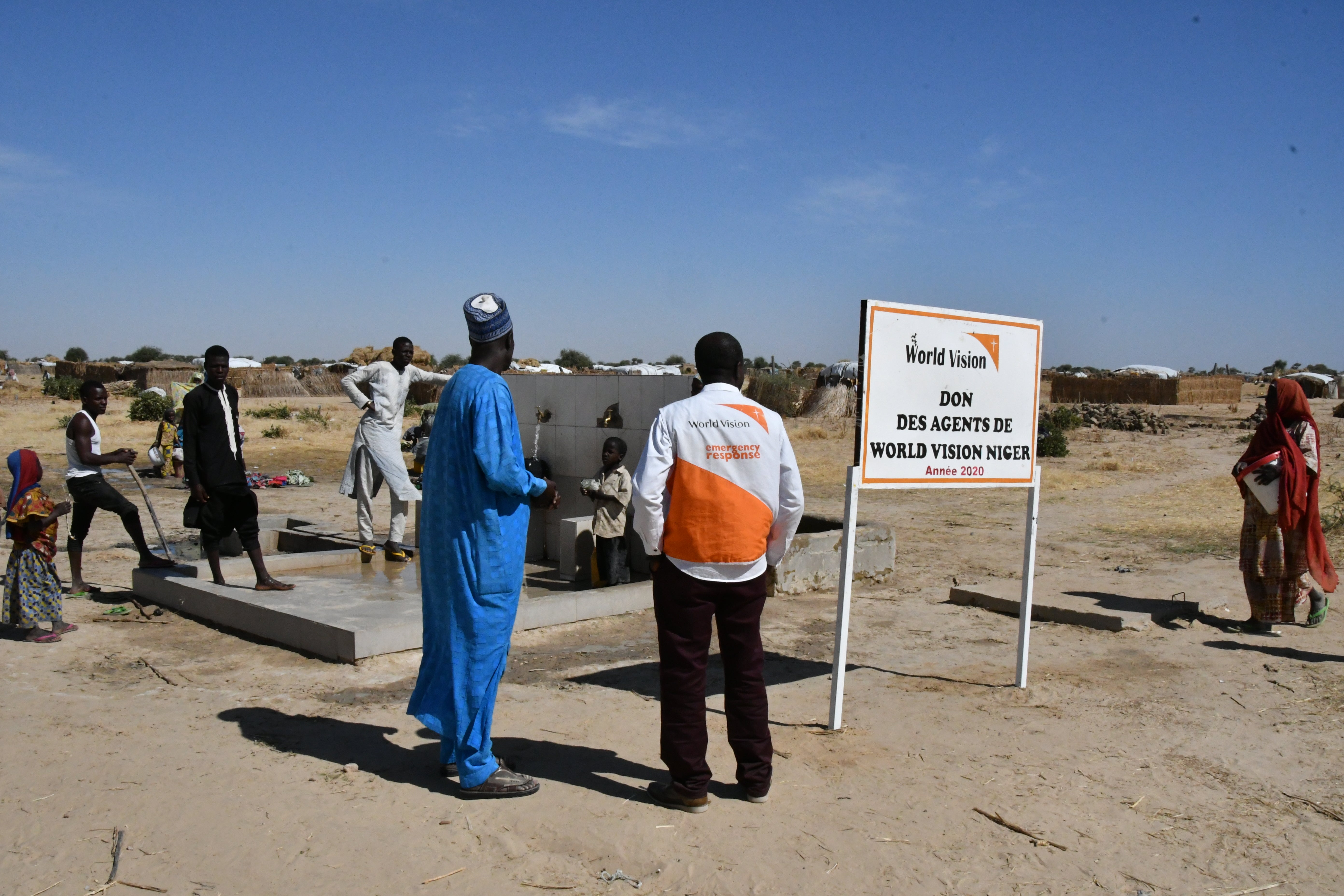
Boulama, chief of the village of Gueskerou, with the program coordinator in front of one of the solar-powered WASH water station. In early October 2019 Komadougou river in Diffa region (Niger) broke its banks, again. 23,000 people had to flee in small boats leaving their villages, homes, crops, farmland & the life they had known and built for generations.
Ibrahim Mohamed Samna
<<The truth of the matter is that climate change doesn’t recognise borders or discriminate based on race or class. Take the Australian Black Summer of 2019-2020 for example; in one of the wealthiest nations on Earth, its largest cities were cloaked in smoke and ash for weeks at a time. Millions of people were forced to shelter indoors while entire coastal towns were evacuated by naval vessels to escape the flames. At the same time, on the other side of the world, a related yet completely different climate disaster was unfolding.>>
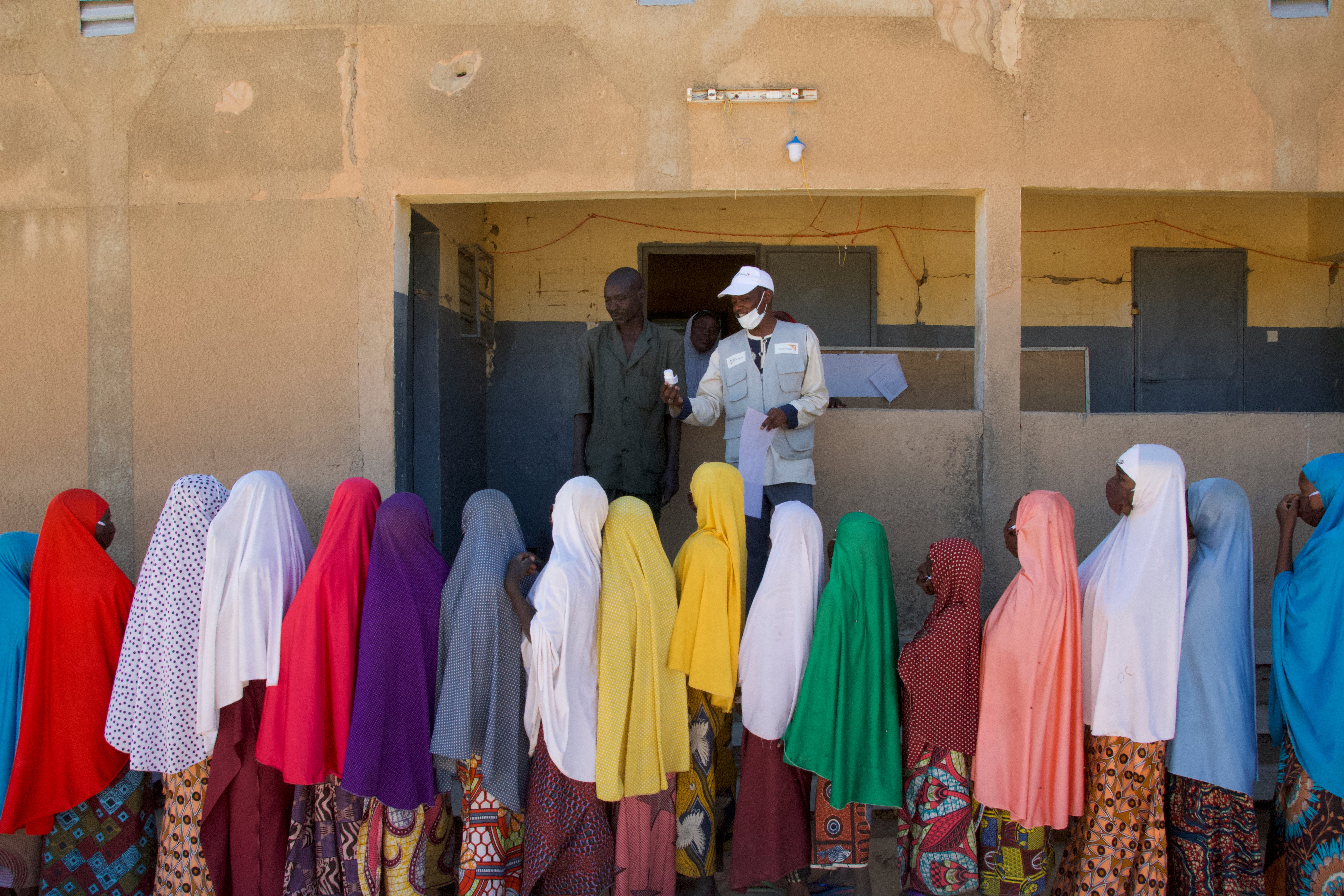
Women attend a health and nutrition program in the newly formed village settlement. These women and their families were forced to migrate due to ongoing and worsening changes in climate. Rising rivers and reoccurring floods destroyed their homes, along with crops, food sources, incomes and village community.
Ibrahim Mohamed Samna
In October 2019, after weeks of heavy rain, the Komadougou river in the Diffa region of Niger broke its banks forcing more than 23,000 people to flee for their lives. Thousands of hectares of crops, farmland and homes in the region were inundated.
“I remember that 3,000 families of the village were displaced. When I left, I lost my possessions, including my house, food, clothes, and farmland — all washed away,” he recalls.
According to the UN's human rights agency UNHCR, the Diffa region is home to almost 120,000 refugees and 109,000 internally displaced people. And as a result of the cascading crises exacerbated by climate change in 2019, more than 10 per cent of Niger’s population required humanitarian aid.
It was a particularly cruel blow after years of instability for Niger caused by drought, the presence of radical armed groups, and severe food shortages.
As Boulama, a village chief from Gueskerou explains, “When the flooding started, small boats helped us to leave the village with what we could save.”
Boulama’s family escaped the floods, but as climate refugees in their own country, the focus quickly shifted to sourcing clean drinking water and avoiding waterborne diseases.
”When we left, my children became very sick from diarrhea and vomiting because of drinking water from the river,” Boulama says.
So, in response to the Diffa floods, the World Vision water, sanitation and hygiene (WASH) project provided vital drinking water and sanitation stations to prevent the spread of disease.
“It is incredible ... this support has changed the lives of my people including my family, particularly my children, because now they are clean all the time,” says Boulama.
As climate change continues to displace millions of people across the world, the need for World Vision’s disaster response programmes like WASH will only grow in demand.
But with human ingenuity and spirit on our side, we’ll keep doing everything within our power to solve the problems and ensure the most vulnerable children and communities can build sustainable futures.
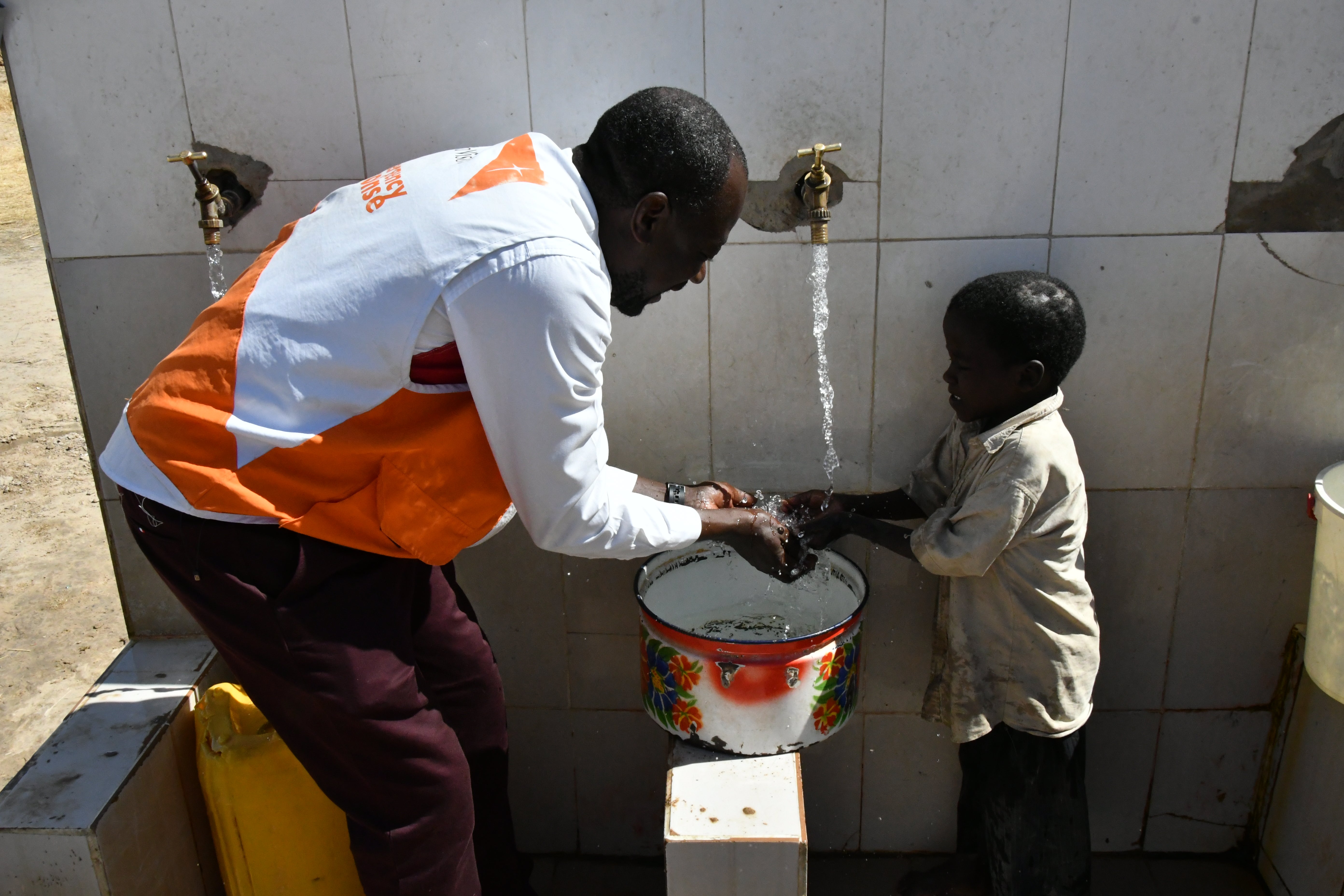
Families forced to flee their homes find themselves in refugee camps and settlements for displaced people. Basic essentials like water and sanitation are critical to ensure families can survive and begin to recover. Displaced by ongoing climate disasters and living in a new camp, this WASH initiative means children enjoy clean drinking water and are no longer sick with diarrhoea and practice good hygiene to prevent the spread of disease.
Ibrahim Mohamed Samna
